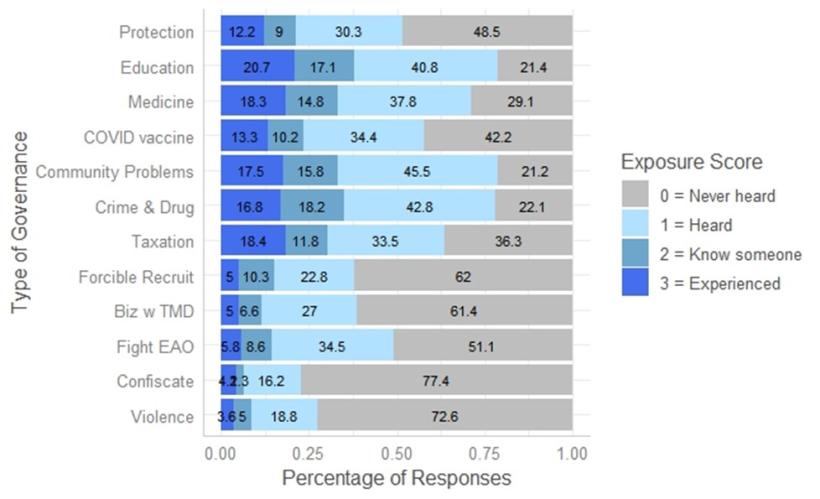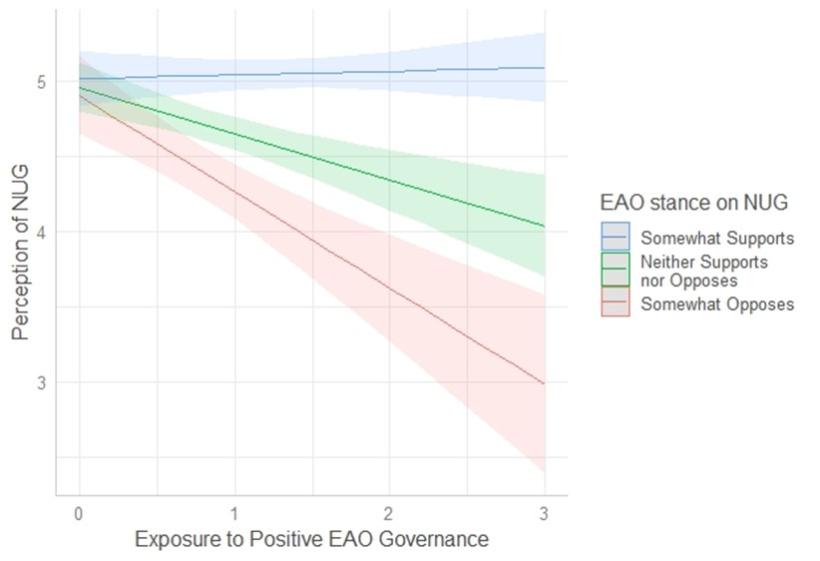
Navigating political upheaval: Rebel governance and trust dynamics in post-coup Myanmar
Findings from an online survey suggest establishing direct cooperation with Ethnic Armed Organisations can potentially foster trust towards the National Unity Government, and contribute to a more inclusive and stable political future of Myanmar.
Since the 2021 military coup, politics in Myanmar has been increasingly tumultuous. The disorder has been especially pronounced in the ethnic minority areas where multiple political authorities were already fighting for control over the population. On top of the conflict between the Myanmar military and ethnic armed organisations (EAOs) fighting for self-determination, the rise of the pro-democracy movement led by the National Unity Government (NUG) has added another dimension to conflict in the country.
Against this backdrop, it is interesting to see where the ethnic minority communities will stand amidst this political upheaval. While some have joined the pro-democracy resistance, others have remained more neutral. It is crucial whether ethnic minority people would support and trust the new national political actor (NUG) as they assess whether it will truly represent their interests, or be another project led by the largest ethnic minority, Bamar?
One key factor that differentiates the ethnic minority areas of Myanmar from the rest of the country is the presence of over twenty different EAOs. They not only ensure security but also provide social services like education, healthcare, and dispute resolution. This raises the question of whether exposure to EAO governance influences one’s perception of other political actors, particularly among ethnic minorities.
To investigate this, an online survey targeting ethnic minority areas of Myanmar was run and Facebook advertisements were leveraged to recruit respondents. By providing translations into Burmese and six minority languages, the survey was able to collect 1,113 respondents from 35 different ethnic groups. They were asked whether they thought the NUG would care for the interests of their ethnic group, and how much they have experienced or heard of various governance activities by the EAO they have the most exposure to.
A high level of trust in NUG among ethnic minority communities
Results of the survey show that in general, trust for the NUG is high among ethnic minority communities. 69% of all the respondents said they trusted the NUG and 79% said the NUG would be effective in providing social services to their ethnic group’s area.
People were also mostly confident that the NUG would prioritise the interests of their ethnic group or ethnic minorities in general. Around 70% believed the NUG would advocate for their ethnic group’s interests, while 49% said the NUG would ensure representation of their ethnic group’s people in positions of power. Additionally, 51% felt they would prioritise the interests of Bamar and ethnic minority people equally.
Positive and negative EAO governance experiences influence trust in ethnic minority areas
There is a moderate level of exposure to governance provided by ethnic armed organisations (EAOs) in ethnic minority areas. About 33-38% of respondents said they had either directly experienced or know someone who had experienced their EAO providing education and medical care, solving community problems, and dealing with crimes and drugs. When considering those who had only heard about these activities, the rate was as high as 71-79%.
Exposure to negative governance activities including taxation, forcible recruitment, engaging in business with the Myanmar military (Tatmadaw), and violence against civilians was much lower in general. Although among respondents, 30% had directly or indirectly experienced taxation, direct or indirect exposure to other activities ranged from 8-15%.
A significant correlation was found between exposure to EAO governance and trust in the EAOs. Greater exposure to positive governance activities resulted in higher trust for the EAOs, while those with more negative exposure had lower trust for the EAOs. These relationships remained true even after accounting for respondents’ strength of ethnic identity, exposure to violence by Myanmar military, and ethno-political beliefs.
Figure 1: Distribution of responses by governance type and exposure level

Notes: The distribution of responses varies based on the level of exposure, with the majority of respondents reporting the lowest exposure levels (0 and 1). The majority of respondents reported exposure to governance related to education, medical services, and community issue resolution.
Reliance on EAOs for social services may challenge the widespread popularity of the NUG in Myanmar
The survey shows that EAO governance affects trust not only for the EAOs themselves, but also for the NUG. More exposure to positive EAO governance is associated with slightly lower trust in the NUG, as long as the EAO is not perceived as explicitly supportive of the NUG. When respondents believed that their EAO as neutral towards the NUG, then an increase in average exposure score from 0 (never heard) to 3 (experienced firsthand) moves their average perception of the NUG from 5 (somewhat positive) to 4 (neither positive nor negative). This is true even after accounting for factors such as respondent’s exposure to NUG governance, belief in democracy, strength of ethnic identity, and other demographic variables.
This is a significant result considering the near universal popularity of the NUG in Myanmar. It indicates that those accustomed to receiving social services and governance from EAOs are less likely to trust that the NUG would prioritise their ethnic group’s interest if it assumes control of the country.
Figure 2: Positive EAO governance, EAO stance on NUG, and NUG perceptions

Notes: This figure illustrates the relationship between positive EAO governance and perceptions of the NUG among respondents, showing that increased exposure to positive EAO governance is associated with lower perceptions of the NUG. This relationship is most pronounced when the EAO's stance somewhat opposes the NUG. Conversely, when the EAO's stance somewhat supports the NUG, greater exposure to positive EAO governance leads to slightly higher perceptions of the NUG.
Implications for Myanmar politics
The study’s findings suggest that EAOs are important political actors with significant influence and enjoy a high level of trust among the ethnic minority population. Recognised as major providers of governance and social service providers as well as protectors of ethnic minority interests over many decades, they should be actively included in political dialogues and decision-making processes.
The study also suggests that the NUG would benefit from direct cooperation with the EAOs in order to build trust among ethnic minority populations. Once an EAO is in direct collaboration with the NUG, governance provision by the EAO does not negatively undermine trust in the NUG. Building a cooperative relationship with EAOs would enable the NUG to more easily gain the trust of the ethnic minority communities.

